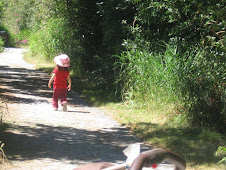The trend towards one-child families seems to have created some controversy over the pros and cons of raising an only child. There are many reasons for having an only child and there are many opinions about the consequences of raising an only child.
Many couples choose to have only one child because they begin their child rearing later in life, preferring to purchase a home and establish themselves in their careers first. Other couples may base their decision on the cost of raising a child to adulthood. The latest statistics indicate that it costs a minimum of $160,000 to raise a child to the age of eighteen.
Some believe that the negatives of raising an only child are that they may tend to be more aggressive, bossy, spoiled, selfish, and dependent on their parents and other adults in their lives. Only children, others feel, appear to mature more quickly than children with siblings.
A professor at Rutgers University in New Jersey believes these are social stereotypes dating back to the 1890’s and has no basis in fact. She believes that parenting styles will have more of an influence on how an only child, or any child, will turn out.
Some of the questions asked by proponents of larger families are:
- Do only children grow up with a different attitude and view of the world and perhaps for this reason may be more self-centered?
- Do children with siblings have better interpersonal skills?
In an article written in the Canadian Journal of Psychiatry, a study was conducted indicating that there are no marked differences in personality traits in only children than in those with siblings.
The study’s conclusion was that the biggest predictor of differences between children, whether from one child families or those with siblings, was the parental caregiver’s child-rearing attitudes, i.e.: if the parent did not exhibit significant impatience, rejection, stubbornness, neglect or over protectiveness, there would likely be few disorders of anxiety or dependency, etc. They did note however that parents of only children are generally more likely to be overprotective.
Other questions relating to only children are:
- Do they receive more attention than those who have several siblings and can this be a potential problem?
- Do only children have more opportunities academically and materially than children in larger families?
- Do only children spend more time with adults than those who have siblings resulting in children who are more mature for their ages? And could this potentially rob young children of being children?
- Are only children more spoiled and catered to or are they actually more consistently disciplined?
When speaking with adult only children, they felt that some of the advantages to being an only child were that they definitely had more attention from parents although as one person admitted, this can be a good thing or a bad thing. Only children also felt they had freedom from sibling rivalry and comparisons made to their siblings. Studies show that there is usually greater financial benefits to the only child.
One adult only child said the drawbacks were that he had no one to share the blame with, no older siblings to help him with his homework, no younger sibling to show things to, no older sibling to protect him from bullies and no sibling role models. Another problem was that as parents age, there is no sibling support. He feels that being an only child was often lonely while he was young but is also lonely as an adult when there is no sibling to discuss health problems of an aging parent with.
Another adult only child said that as a child she loved going to friends’ homes where there were other children because she loved the noise, laughter and busyness of a home with several children. She also was very shy as a child because of less interaction with other children so loneliness was an issue. She also resented that as a child and youth she was expected to attend adult occasions with her parents.
Another adult only child said she never felt the need for a sibling because she had always had lots of friends as she was growing up. She said because she was an only child she became completely reliant on herself for her own happiness.
Studies show that only children may have a slight edge regarding intelligence, assuming there is an enriched intellectual home environment. They may also have an edge on abilities to achieve assuming that their environment is one of high expectations with encouragement and motivation to achieve.
Some well-known celebrities who were only children who have accomplished great achievements are Tiger Woods, Robin Williams and John Lennon. But there are many successful people who come from families with siblings.
The answers to questions regarding only children are difficult to determine, if ever we do because of the many variables involved when parenting children whether as only children or in multiple sibling families. It is even more difficult when only children have as many diverse opinions on the pros and cons of being an only child. But those who have chosen to have one child families appear to be happy with their decision.
Sunday, August 29, 2010
Subscribe to:
Post Comments (Atom)





















































































No comments:
Post a Comment